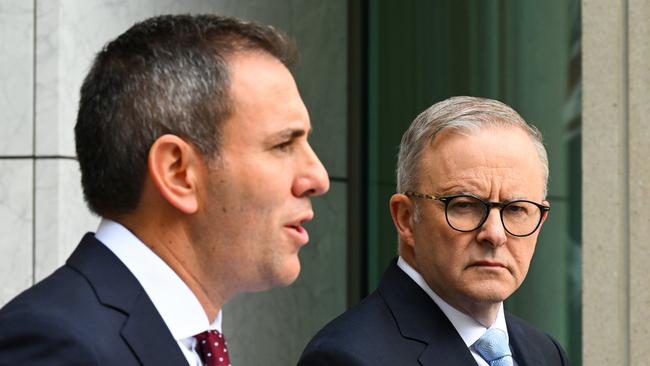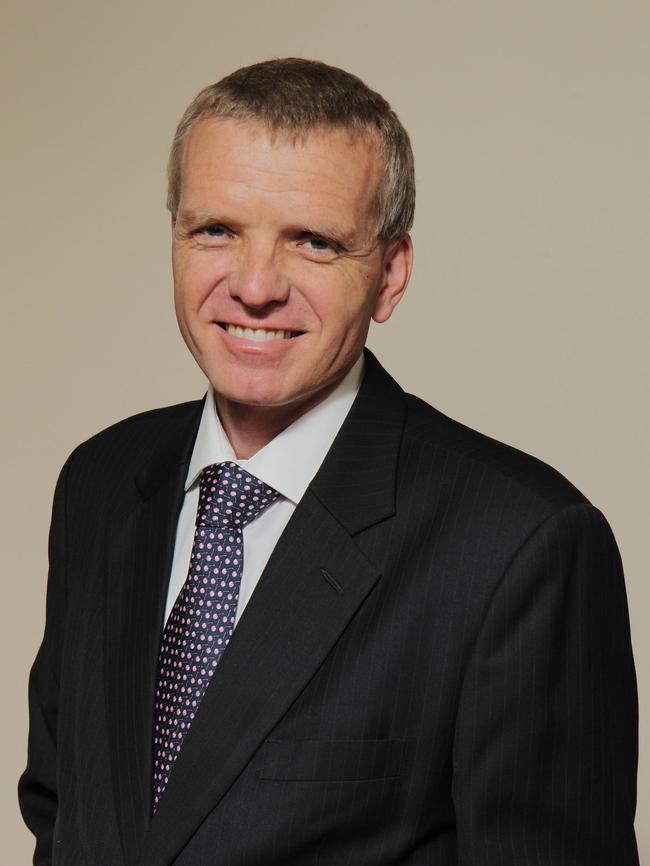Labor gets a defined benefit headache on super
Four experts weigh in on the legal and accounting complexities ahead as the federal government tries to apply superannuation tax concession changes to defined benefit schemes.

Thousands of people in defined benefit schemes could avoid Labor’s increased tax on superannuation for years before they retire, as experts say the government’s proposals are too complex to apply.
The Albanese government is facing a legal and accounting headache as it looks to apply superannuation tax concession changes to defined benefit schemes, with experts divided on whether such a move is even feasible, leaving open the possibility that a cohort of workers could be excluded from the crackdown.
A week after Jim Chalmers proposed a doubling of the tax rate on earnings from super balances above $3m, including taxing unrealised gains on an annual basis, tax experts say the federal government must find a way to capture DB schemes in the proposed changes. But the issue is most complex for those still in the workforce, with limited means of assessing an annual tax bill when contributions are pooled, as is the case with defined benefits.
Indeed, this cohort in unfunded DB schemes could well avoid this tax all the way up until retirement due to the complexities of applying it, according to Chartered Accountants Australia and New Zealand superannuation leader Tony Negline.
“Until they retire, people in the public sector on unfunded schemes will probably avoid this tax … Because of the complexity of these schemes, there’s really no other way to manage it,” Mr Negline said.
“If you have someone who’s 60 years old on, say, a salary of $200,000 a year, they may retire in five or seven years’ time, but they may also die in the meantime. They don’t have $3m in their super. They may have an expectation of receiving that amount, but they don’t have it in an account as such.”
“It’s not going to be an easy solution, whatever they come up with.”

These generous schemes, including the public sector scheme, started closing to new members in the 1990s and early 2000s. But military personnel could access a DB scheme until 2015 and a limited number of DB schemes are still open, including at UniSuper, which has around 80,000 DB members.
The official unfunded-long term liability for public servants and politicians accessing DB schemes is currently sitting at about $300bn, but this is understood to be a conservative figure, with the real shortfall believed to be much higher.
The warnings came as Assistant Treasurer Stephen Jones has refused to rule out the taxation of unrealized appreciation of assets in self-managed superannuation funds including family-owned farms in Labor’s superannuation changes.
When asked in Parliament on Wednesday whether farmers who included their farm as an asset in their self-managed superannuation fund would have to pay tax on unrealized capital appreciation of the property Mr Jones refused to answer.
Mr Jones, who has described the $3 trillion in super funds as a “honey pot” for Labor, said Coalition MPs and Peter Dutton did not even understand the current laws on assets in super funds.
But Mr Jones did not rule out taxing the rise in value of a farm even if it was not sold but said there would be “consultation” because the Government “wanted to get everything right”.
Dr Chalmers last week said the federal government would seek to apply the super tax reforms to DB schemes, as he flagged the challenges with such a move.
“There’s a lot of complexity in the system. For example, it’s our intention to include defined benefits schemes, this will require some consultation to make sure that we get that detail right,” he said.
“If we can include defined benefit schemes in what we’re proposing … we would like to. We would like to speak to the sector about that.”
Finance Minister Katy Gallagher this week said DB schemes would be included in the changes, with the government to consult industry on a path forward.
But financial adviser Olivia Maragna, of Aspire Retire Financial Services, suggested the complexities of DB schemes would make it very challenging to apply the proposed reforms.
“The government has said that they will look at it, their idea is to potentially capture it but I’m guessing in terms of whether that comes to reality, I think it’s less likely than more likely,” Ms Maragna said.
“With these defined benefit pensions, there are no assets, it’s an agreed benefit. What they‘ve got to do is look at what the equivalent of that pension is and work their way backwards to see what the balance is that’s attributable to it.
“I think it’s doable. It’s just about working through it.”
The Financial Services Council also urged the government to consult with industry to ensure workers on these DB schemes “are not unfairly captured by the tax’s final design”.
“One of the key challenges the Government faces is applying the $3m tax to employees currently in defined benefit schemes,” FSC chief executive Blake Briggs said.
“While the value of an employee’s super savings may be over $3m based on broad assumptions, their personal circumstances means they may not receive $3m in retirement benefits and therefore should not be liable for the new tax.
“There may also be no pool of invested money available to be taxed as the defined benefit will be paid by their employer at the time of retirement. This will increasingly become a challenge for the Government as the unindexed cap captures more younger employees over coming years.”
KPMG tax partner Damian Ryan said there was some precedent for having separate rules for DB members in terms of taxes on superannuation contributions, including the so-called Division 293 tax rule, which is an extra tax paid on super contributions when income is above $250,000.
The government may look to apply a similar rule in the case of DB schemes caught up in the tax concession changes, he said.
“For defined benefit members, they accrue what’s called a notional death in relation to the Division 293 tax and then they claw back some of that debt as they’re paid benefits out,” Mr Ryan said.
“I imagine they will need a separate mechanism like that to apply this type of tax as well.”
This rule could apply through the working life but would most likely be deferred until retirement, if applied, he added.
Despite the complexities, Mr Ryan is of the view that the government will find a way to capture DB schemes in the new rules.
“They can’t bring it in for defined contribution and not defined benefit. They’ll have to find a way,” he said.






To join the conversation, please log in. Don't have an account? Register
Join the conversation, you are commenting as Logout